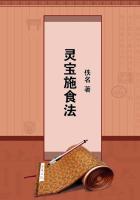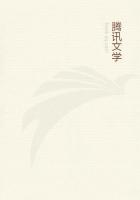In these celebrations of which we speak, the unseen god leaves those in doubt of his existence who think nothing patent but what may be known to the flesh: it happens as if a man slept a life through and took the dream world in perfect trust; wake him, and he would refuse belief to the report of his open eyes and settle down to sleep again.
12.Knowing demands the organ fitted to the object; eyes for one kind, ears for another: similarly some things, we must believe, are to be known by the Intellectual-Principle in us.We must not confuse intellection with hearing or seeing; this would be trying to look with the ears or denying sound because it is not seen.Certain people, we must keep in mind, have forgotten that to which, from the beginning onwards, their longing and effort are pointed: for all that exists desires and aspires towards the Supreme by a compulsion of nature, as if all had received the oracle that without it they cannot be.
The perception of Beauty and the awe and the stirring of passion towards it are for those already in some degree knowing and awakened: but the Good, as possessed long since and setting up a natural tendency, is inherently present to even those asleep and brings them no wonder when some day they see it, since it is no occasional reminiscence but is always with them though in their drowse they are not aware of it: the love of Beauty on the contrary sets up pain when it appears, for those that have seen it must pursue.This love of Beauty then is later than the love of Good and comes with a more sophisticated understanding; hence we know that Beauty is a secondary: the more primal appetition, not patent to sense, our movement towards our good, gives witness that The Good is the earlier, the prior.
Again; all that have possessed themselves of The Good feel it sufficient: they have attained the end: but Beauty not all have known and those that have judge it to exist for itself and not for them, as in the charm of this world the beauty belongs only to its possessor.
Then, too, it is thought enough to appear loveable whether one is so or not: but no one wants his Good in semblance only.All are seeking The First as something ranking before aught else, but they struggle venomously for beauty as something secondary like themselves:
thus some minor personage may perhaps challenge equal honour with the King's right-hand man on pretext of similar dependence, forgetting that, while both owe their standing to the monarch, the other holds the higher rank.
The source of the error is that while both The Good and The Beautiful participate in the common source, The One precedes both; and that, in the Supreme also, The Good has no need of The Beautiful, while the Beautiful does need The Good.
The Good is gentle and friendly and tender, and we have it present when we but will.Beauty is all violence and stupefaction; its pleasure is spoiled with pain, and it even draws the thoughtless away from The Good as some attraction will lure the child from the father's side: these things tell of youth.The Good is the older-not in time but by degree of reality- and it has the higher and earlier power, all power in fact, for the sequent holds only a power subordinate and delegated of which the prior remains sovereign.
Not that God has any need of His derivatives: He ignores all that produced realm, never necessary to Him, and remains identically what He was before He brought it into being.So too, had the secondary never existed, He would have been unconcerned, exactly as He would not have grudged existence to any other universe that might spring into being from Him, were any such possible; of course no other such could be since there is nothing that has not existence once the All exists.
But God never was the All; that would make Him dependent upon the universe: transcending all, He was able at once to make all things and to leave them to their own being, He above.
13.The Supreme, as the Absolute Good and not merely a good being or thing, can contain nothing, since there is nothing that could be its good.
Anything it could contain must be either good to it or not good;but in the supremely and primally Good there can be nothing not good; nor can the Absolute Good be a container to the Good:
containing, then, neither the good nor the not good it contains nothing and, containing nothing, it is alone: it is void of all but itself.
If the rest of being either is good- without being the absolute good- or is not good, while on the other hand the Supreme contains neither what is good nor what is not good, then, containing nothing, it is The Good by that very absence of content.
Thus we rob it of its very being as The Absolute Good if we ascribe anything to it, existence or intellect or goodness.The only way is to make every denial and no assertion, to feign no quality or content there but to permit only the "It is" in which we pretend to no affirmation of non-existent attribute: there is an ignorant praise which, missing the true description, drags in qualities beneath the real worth and so abases; philosophy must guard against attaching to the Supreme what is later and lower: moving above all that order, it is the cause and source of all these, and is none of them.
For, once more, the nature of the Good is not such as to make it all things or a thing among all: that would range it under the same classification with them all and it would differ, thus, only by its individual quality, some specialty, some addition.At once it becomes not a unity but a duality; there is one common element not good and another element that is good; but a combination so made up of good and not good cannot be the purely good, the primarily good; the primarily good must be that principle in which the better element has more effectively participated and so attained its goodness.Any good thing has become so by communion; but that in which it has communion is not a thing among the things of the all; therefore the Good is not a thing of the All.















